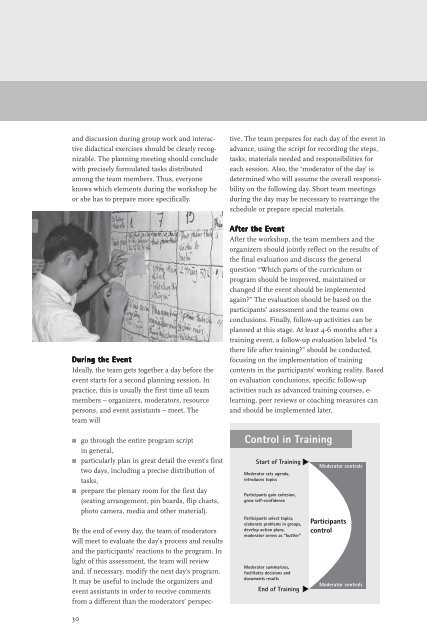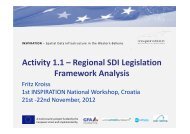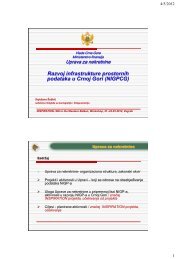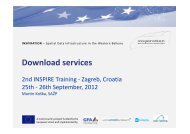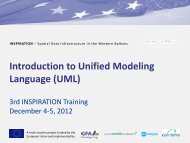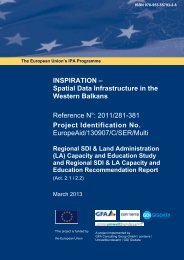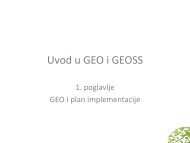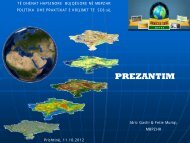MOVE - Moderation and Visualization for Group ... - INSPIRATION
MOVE - Moderation and Visualization for Group ... - INSPIRATION
MOVE - Moderation and Visualization for Group ... - INSPIRATION
Create successful ePaper yourself
Turn your PDF publications into a flip-book with our unique Google optimized e-Paper software.
<strong>and</strong> discussion during group work <strong>and</strong> interactive<br />
didactical exercises should be clearly recognizable.<br />
The planning meeting should conclude<br />
with precisely <strong>for</strong>mulated tasks distributed<br />
among the team members. Thus, everyone<br />
knows which elements during the workshop he<br />
or she has to prepare more specifically.<br />
During During the the Event<br />
Event<br />
Ideally, the team gets together a day be<strong>for</strong>e the<br />
event starts <strong>for</strong> a second planning session. In<br />
practice, this is usually the first time all team<br />
members – organizers, moderators, resource<br />
persons, <strong>and</strong> event assistants – meet. The<br />
team will<br />
■ go through the entire program script<br />
in general,<br />
■ particularly plan in great detail the event’s first<br />
two days, including a precise distribution of<br />
tasks,<br />
■ prepare the plenary room <strong>for</strong> the first day<br />
(seating arrangement, pin boards, flip charts,<br />
photo camera, media <strong>and</strong> other material).<br />
By the end of every day, the team of moderators<br />
will meet to evaluate the day’s process <strong>and</strong> results<br />
<strong>and</strong> the participants’ reactions to the program. In<br />
light of this assessment, the team will review<br />
<strong>and</strong>, if necessary, modify the next day’s program.<br />
It may be useful to include the organizers <strong>and</strong><br />
event assistants in order to receive comments<br />
from a different than the moderators’ perspec-<br />
30<br />
tive. The team prepares <strong>for</strong> each day of the event in<br />
advance, using the script <strong>for</strong> recording the steps,<br />
tasks, materials needed <strong>and</strong> responsibilities <strong>for</strong><br />
each session. Also, the ‘moderator of the day’ is<br />
determined who will assume the overall responsibility<br />
on the following day. Short team meetings<br />
during the day may be necessary to rearrange the<br />
schedule or prepare special materials.<br />
After After the the Event<br />
Event<br />
After the workshop, the team members <strong>and</strong> the<br />
organizers should jointly reflect on the results of<br />
the final evaluation <strong>and</strong> discuss the general<br />
question “Which parts of the curriculum or<br />
program should be improved, maintained or<br />
changed if the event should be implemented<br />
again?” The evaluation should be based on the<br />
participants’ assessment <strong>and</strong> the teams own<br />
conclusions. Finally, follow-up activities can be<br />
planned at this stage. At least 4-6 months after a<br />
training event, a follow-up evaluation labeled “Is<br />
there life after training?” should be conducted,<br />
focusing on the implementation of training<br />
contents in the participants’ working reality. Based<br />
on evaluation conclusions, specific follow-up<br />
activities such as advanced training courses, elearning,<br />
peer reviews or coaching measures can<br />
<strong>and</strong> should be implemented later.


